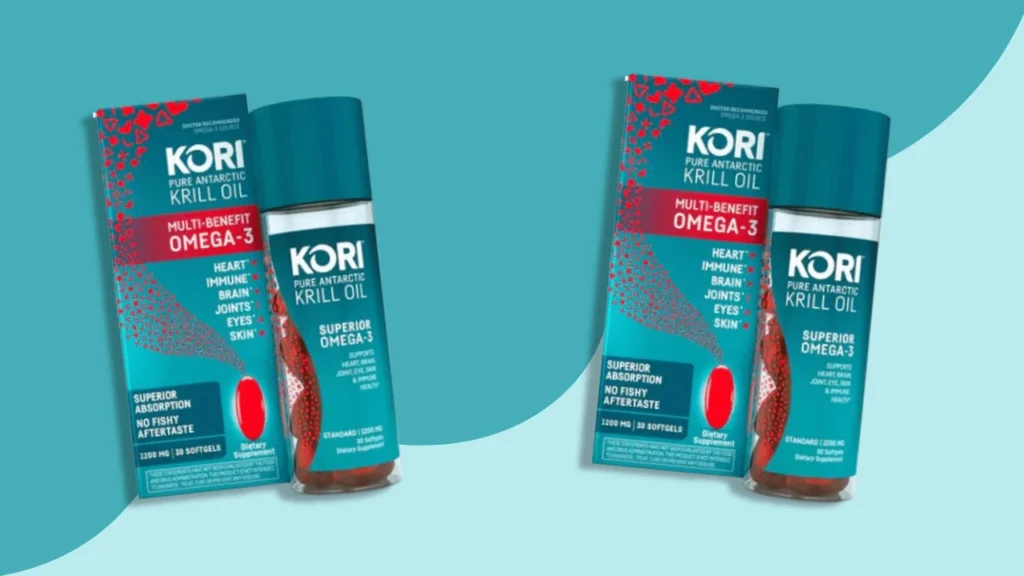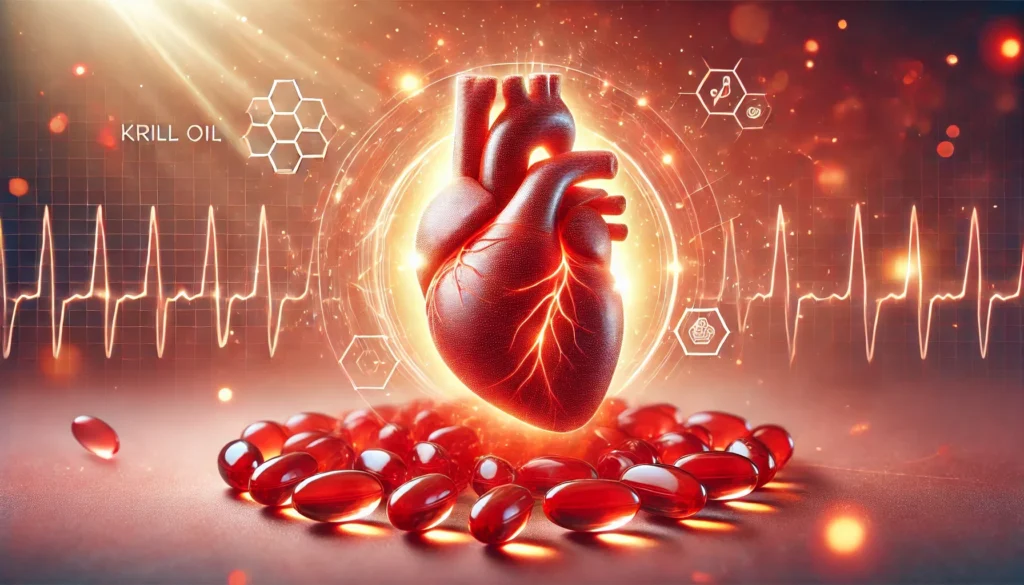Arguably one of the most important organs in our bodies is the heart. After all, it’s an organ that keeps us alive. On top of this, heart disease is the leading cause of death in the United States. So it should go without saying that protecting your heart health should be one of your top health priorities. Omega 3 fatty acids play a key role in this.
In this article, you’ll discover the essential benefits of Omega 3 for heart health, including how Omega 3 can reduce triglyceride levels, lower blood pressure, and reduce inflammation, among other effects. We’ll wrap up the article by discussing strategies and considerations for adding more Omega 3 to your diet.
Understanding Omega 3 Fatty Acids
Omega 3 fatty acids are a group of essential fats. As essential fats, our bodies cannot produce them on their own, so we need to obtain them from our diets. The two primary types of Omega 3s are Eicosapentaenoic acid (EPA) and Docosahexaenoic acid (DHA). These fatty acids are found in high amounts in some marine sources, including fish, krill, and algae.
These fatty acids play key roles in the structure and function of our body. Omega 3s are vital parts of cell membranes, playing a role in maintaining their integrity and fluidity. Omega 3s also contribute to the formation of eicosanoids, which are molecules that regulate inflammation and blood clotting.
Omega 3 for Heart Health: The Connection
Numerous scientific studies have highlighted the significant impact of EPA and DHA Omega 3 on heart health. As fatty acids are known to support many aspects of cardiovascular health, they’re invaluable additions to your lifestyle.
1. Reducing Triglyceride Levels
High triglyceride levels are a risk factor for heart disease. Omega 3s, particularly EPA, have been shown to lower triglyceride levels. This effect helps to reduce the risk of heart-related complications. By regulating triglyceride levels, Omega 3 for heart health contributes to a healthier cardiovascular system.
2. Lowering Blood Pressure
High blood pressure – hypertension – is a leading cause of heart problems. DHA Omega 3s can help lower blood pressure, thus promoting a healthy cardiovascular system. By maintaining optimal blood pressure levels, Omega 3s reduce strain on the heart, lowering the risk of heart disease and stroke.
3. Managing Cholesterol Levels
Imbalanced cholesterol levels can have negative effects on the heart. Studies have shown that EPA and DHA can increase HDL cholesterol (the “good” cholesterol) while reducing LDL cholesterol (the “bad” cholesterol). This balance is essential for reducing plaque buildup in the arteries, subsequently decreasing the risk of atherosclerosis and related cardiovascular issues.
4. Reducing Inflammation
Inflammation plays a central role in the development of heart disease. The properties of Omega 3s can mitigate inflammation and protect the heart. By reducing chronic inflammation, Omega 3s contribute to a lower risk of coronary artery disease and other heart diseases.
5. The Role of Omega 3s in Heart Rhythm
Beyond their impact on cholesterol, blood pressure, and inflammation, Omega 3 for heart health also plays a vital role in maintaining a healthy heart rhythm. Irregular heart rhythms, also known as arrhythmias, can disrupt the heart’s normal functioning and lead to serious complications.
Research has shown that Omega 3s can help stabilize the heart’s electrical activity, which reduces the risk of arrhythmias. Additionally, these fatty acids work to maintain a regular heartbeat. Finally, Omega 3s have been associated with a decreased risk of sudden cardiac death.

Omega 3s and Endothelial Function
The endothelium is the inner lining of blood vessels. Its proper function is essential for maintaining healthy circulation. Impaired endothelial function is linked to the development of atherosclerosis; this is when plaque builds up in the arteries, increasing the risk of heart attacks and strokes.
EPA and DHA Omega 3s have been found to improve endothelial function, enhancing the blood vessels’ ability to relax and dilate when needed. By supporting endothelial health, Omega 3s can improve blood flow and reduce strain on the heart.
Incorporating Omega 3 into Your Diet
Incorporating Omega 3 into your diet is essential to embrace its benefits for heart health. Apart from supplementation, you can find these essential fatty acids in various dietary sources:
- Fatty fish like salmon, mackerel, and sardines are excellent sources of EPA and DHA Omega 3s. You should aim to include at least two servings of fatty fish in your weekly meals.
- Plant-based sources like flaxseeds, chia seeds, and walnuts contain Alpha-Linolenic Acid (ALA), a precursor to EPA and DHA. While ALA is not as potent as EPA and DHA, incorporating these foods into your diet can still contribute to your Omega 3 intake.
- Omega 3-enriched eggs and dairy products are produced by feeding the animals Omega 3-rich diets. These products contain higher levels of EPA/DHA than regular eggs and dairy.

Choosing the Right Supplement
While getting Omega 3s from food sources is ideal, supplementation can also be beneficial. The need to supplement is especially true for those with dietary restrictions or limited access to fresh seafood. When selecting an Omega 3 supplement, consider factors such as quality, sustainability, and bioavailability.
Krill Oil Softgels 1200 mg: A Top-notch Source of EPA + DHA Omega 3
When it comes to Omega 3 for heart health supplementation, quality matters. One of the market’s best and most reputable sources of EPA and DHA Omega 3s is Krill Oil Softgels 1200 mg from Kori Krill Oil. Extracted from tiny crustaceans called krill, Kori Krill Oil offers a premium and sustainable source of these essential fatty acids.
Krill oil stands out from traditional fish oil due to its unique composition. The Omega 3s in krill oil are in the form of phospholipids. This superior bioavailability allows for better absorption by the body compared to the triglyceride form found in fish oil. This bioavailability also means that you get more Omega 3s with smaller doses, making it easier to incorporate into your daily routine.
The Krill Oil Softgels 1200 mg from Kori Krill Oil are a convenient and efficient way to ensure you receive the optimal dosage of Omega 3s daily. With their high-quality formulation, you can be confident that you are nurturing your heart health.
For more information on Kori Krill Oil’s complete range of products and specifications, visit their website.

Balancing Omega 3s with Omega 6s
Omega 3 for heart health offers many benefits. However, it’s essential to maintain a balanced ratio of Omega 3 to Omega 6 fatty acids in your diet. Omega 6 fatty acids are also essential fats. They can be found in vegetable oils, nuts, and seeds.
In the modern Western diet, Omega 6 fatty acids intake has significantly increased compared to Omega 3s. This imbalance can promote inflammation and potentially negate some of the heart-healthy effects of Omega 3s. To achieve a healthier balance, you can consider reducing the consumption of processed and fried foods rich in Omega 6s. You may also want to increase your intake of Omega 3-rich foods or supplements.
Safety and Precautions
For most individuals, Omega 3 for heart health supplements, such as Krill Oil Softgels 1200 mg from Kori Krill Oil, are safe and well-tolerated. However, it’s important to consult a healthcare professional before starting any new supplement, especially if you are pregnant, nursing, taking medications, or have any underlying health conditions. Dosage recommendations may vary based on individual health needs. For this reason, you should follow the guidance of a qualified healthcare provider.
Why you should take Omega 3 for heart health
Getting the right balance of nutrients is essential for maintaining your heart’s health. Omega 3 fatty acids are key to this. Omega 3 for heart health can contribute to proper heart functioning and overall wellness. The right supplement can improve circulation, heart rhythm, and blood pressure. However, natural sources like fish and seeds are also effective in providing the necessary amount of Omega 3s. Regardless of how you take Omega 3, be smart and take your doctor’s advice. Remember, caring for your heart is an investment in a healthier and more vibrant future.

For further reading:
- American Heart Association – Fish and Omega-3 Fatty Acids
- National Institutes of Health – Omega-3 Fatty Acids
- MedlinePlus – Omega-3 fats – Good for your heart
- Penn Medicine – The Truth About Fish Oil, Omega-3 Fatty Acids, and Heart Health
- Cleveland Clinic – Omega-3 Fatty Acids
Important Note: The information contained in this article is for general informational purposes only, and should not be construed as health or medical advice, nor is it intended to diagnose, prevent, treat, or cure any disease or health condition. Before embarking on any diet, fitness regimen, or program of nutritional supplementation, it is advisable to consult your healthcare professional in order to determine its safety and probable efficacy in terms of your individual state of health.
Regarding Nutritional Supplements Or Other Non-Prescription Health Products: If any nutritional supplements or other non-prescription health products are mentioned in the foregoing article, any claims or statements made about them have not been evaluated by the U.S. Food and Drug Administration, and such nutritional supplements or other health products are not intended to diagnose, treat, cure, or prevent any disease.

